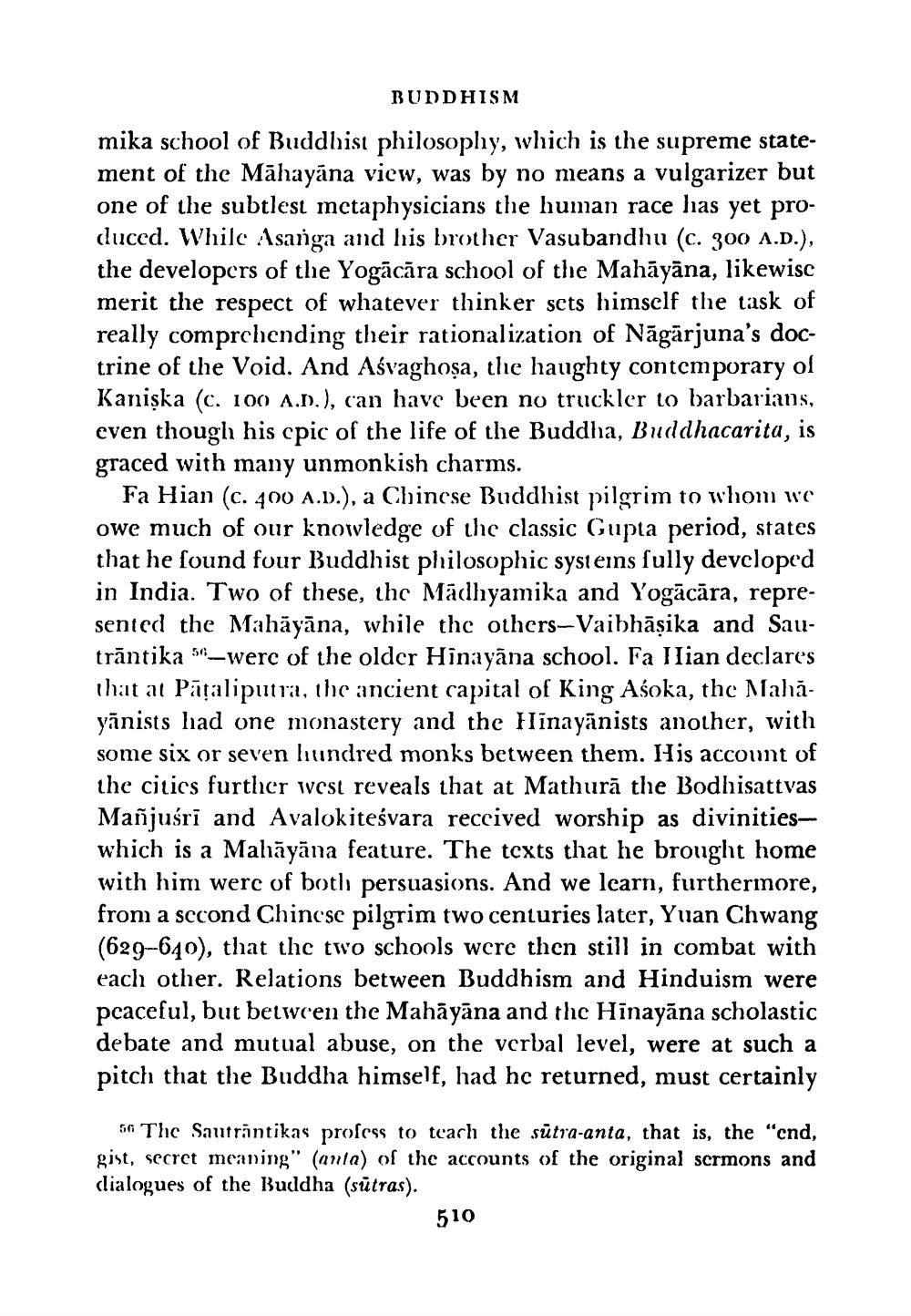________________
BUDDHISM
mika school of Buddhist philosophy, which is the supreme statement of the Māhayāna vicw, was by no means a vulgarizer but one of the subtlest metaphysicians the human race has yet produced. While Asanga and his brother Vasubandhu (c. 300 A.D.), the developers of the Yogācāra school of the Mahāyāna, likewise merit the respect of whatever thinker sets himself the task of really comprchending their rationalization of Nāgārjuna's doctrine of the Void. And Ašvaghosa, thie haughty contemporary of Kaniska (c. 100 A.D.), can have been no truckler to barbarians, even though his cpic of the life of the Buddha, Buddhacarita, is graced with many unmonkish charms.
Fa Hian (c. 400 A.D.), a Chinese Buddhist pilgrim to whom we owe much of our knowledge of the classic Gupta period, states that he found four Buddhist philosophic systems sully developed in India. Two of these, the Mādhyamika and Yogācāra, represented the Mahāyāna, while the others-Vaibhāșika and Sautrāntika 5-werc of the older Hinayāna school. Fa Ilian declares that at Pāšaliputra, the ancient capital of King Asoka, the Mahayānists liad one monastery and the Hinayānists another, with some six or seven hundred monks between them. His account of the citics further west reveals that at Mathurā the Bodhisattvas Mañjuśrī and Avalokitesvara received worship as divinitieswhich is a Malāyāna feature. The texts that he brought home with him were of both persuasions. And we learn, furthermore, from a second Chinese pilgrim two centuries later, Yuan Chwang (629-640), that the two schools were then still in combat with each other. Relations between Buddhism and Hinduism were peaceful, but between the Mahāyāna and the Hinayāna scholastic debate and mutual abuse, on the verbal level, were at such a pitch that the Buddha himself, had he returned, must certainly
5 The Saurantikas profess to teach the sūtra-anta, that is, the "cnd, gist, secret meaning" (anta) of the accounts of the original scrmons and dialogues of the Buddha (sutras).
510




